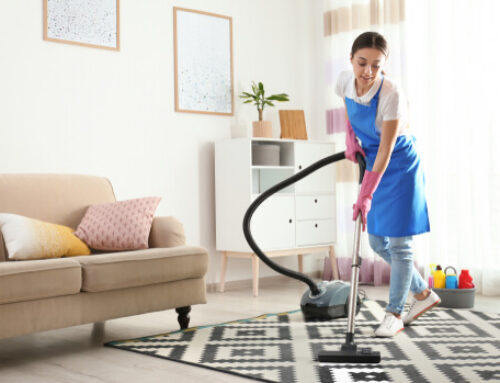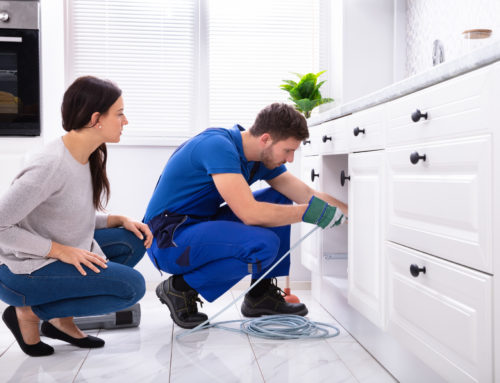Granite countertops are a popular choice in many homes due to their durability, elegance, and natural beauty. However, maintaining that luxurious look requires proper care and cleaning techniques. Without the right maintenance, granite can become dull, scratched, or even stained. This comprehensive guide will provide you with essential cleaning tips to keep your granite countertops looking pristine and ensure their longevity. Whether you’re a new homeowner or looking to improve your cleaning routine, these tips will help you protect your investment and enjoy your granite countertops for years to come.
Daily Cleaning Routine
Keeping your granite countertops clean on a daily basis is the key to maintaining their beauty and durability. Here are some effective daily cleaning practices:
- Use a Soft Cloth or Sponge: Always use a soft cloth or sponge to clean your granite countertops. Abrasive materials can scratch the surface and dull the shine.
- Mild Dish Soap and Water: Mix a small amount of mild dish soap with warm water. Dip your cloth or sponge into the soapy water and wipe the countertops in a circular motion. Rinse the cloth or sponge with clean water and wipe again to remove any soap residue.
- Avoid Acidic Cleaners: Acidic substances such as vinegar, lemon juice, or ammonia can etch the surface of the granite and cause dullness. Stick to pH-neutral cleaners to protect your countertops.
- Dry with a Soft Towel: After cleaning, use a soft, dry towel to thoroughly dry the countertops. This helps to prevent water spots and streaks.
Dealing with Spills
Spills are inevitable, but how you handle them can make a big difference in maintaining the appearance of your granite countertops:
- Blot, Don’t Wipe: When spills occur, blot the area with a soft cloth or paper towel. Wiping can spread the spill and potentially stain a larger area.
- Immediate Cleanup: Clean up spills as soon as they happen to prevent staining. Common household items like wine, coffee, and oil can stain granite if left for too long.
- Gentle Cleaning Solution: For stubborn spills, use a gentle cleaning solution of water and mild dish soap. Apply it to the spill and blot gently.
Stain Removal Techniques
Despite your best efforts, stains can sometimes occur. Here’s how to effectively remove them without damaging your granite countertops:
- Baking Soda Poultice: For oil-based stains, make a paste with baking soda and water. Apply the paste to the stain, cover with plastic wrap, and let it sit for 24 hours. The baking soda will draw out the oil, and you can then rinse and wipe the area clean.
- Hydrogen Peroxide Poultice: For water-based stains, use a mixture of hydrogen peroxide and baking soda. Apply the paste to the stain, cover with plastic wrap, and leave it for 24 hours. Afterward, rinse and clean the area.
- Commercial Stain Removers: There are commercial products specifically designed for granite stain removal. Follow the manufacturer’s instructions carefully to avoid damaging the surface.
Regular Sealing
Granite is a porous material, which means it can absorb liquids and stains if not properly sealed. Regular sealing helps protect your countertops and maintain their appearance:
- Check the Seal: To test if your granite needs sealing, sprinkle a few drops of water on the surface. If the water beads up, the seal is intact. If it soaks into the granite, it’s time to reseal.
- Choose the Right Sealer: Use a high-quality granite sealer designed specifically for natural stone. Follow the product instructions for the best results.
- Apply the Sealer: Clean the countertop thoroughly before applying the sealer. Apply the sealer evenly with a clean cloth, following the product directions. Allow it to penetrate the surface for the recommended time before wiping off any excess.
Preventive Measures
Taking preventive measures can go a long way in keeping your granite countertops in excellent condition:
- Use Cutting Boards: Always use cutting boards when preparing food. Cutting directly on the granite can cause scratches and dull the surface.
- Avoid Heat Damage: While granite is heat resistant, placing hot pots and pans directly on the surface can cause thermal shock and cracks. Use trivets or hot pads to protect your countertops.
- Avoid Heavy Impact: Dropping heavy items on granite countertops can cause chips or cracks. Handle heavy kitchenware with care.
- Use Coasters and Placemats: Place coasters under glasses and placemats under dishes to prevent scratches and stains from acidic foods and beverages.
Specialized Cleaning Solutions
While daily cleaning with mild soap and water is usually sufficient, there are times when specialized cleaning solutions may be necessary:
- Granite-Specific Cleaners: These cleaners are formulated to safely clean granite without causing damage. They often contain conditioners that help maintain the stone’s shine.
- Disinfecting Solutions: To disinfect your countertops, use a mixture of equal parts water and isopropyl alcohol. Spray the solution on the surface and let it sit for a few minutes before wiping it clean with a soft cloth. This method disinfects without damaging the seal.
- Avoid Harsh Chemicals: Steer clear of bleach, ammonia, or any harsh chemicals that can degrade the sealer and damage the granite. Stick to products labeled safe for natural stone.
Long-Term Care Tips
Proper long-term care ensures your granite countertops remain beautiful and functional for years to come:
- Regular Inspections: Periodically inspect your countertops for any signs of damage or wear. Early detection can prevent minor issues from becoming major problems.
- Address Minor Repairs: Small chips or cracks can often be repaired with granite repair kits available at home improvement stores. Follow the kit instructions carefully to avoid further damage.
- Professional Maintenance: Consider hiring a professional to polish and reseal your countertops every few years. This not only enhances their appearance but also adds an extra layer of protection.
Common Mistakes to Avoid
Avoiding common mistakes is crucial to maintaining the beauty and integrity of your granite countertops:
- Using the Wrong Cleaners: As mentioned earlier, acidic or abrasive cleaners can damage granite. Stick to pH-neutral cleaners and those specifically formulated for natural stone.
- Neglecting Sealing: Failing to seal your countertops regularly can lead to staining and water damage. Make sealing a part of your regular maintenance routine.
- Ignoring Spills: Letting spills sit for too long can result in stubborn stains. Always clean up spills immediately.
- Using Too Much Cleaner: Using too much cleaner can leave residue on your countertops. A small amount of mild dish soap in water is usually sufficient.
Seasonal Care Tips
Different seasons can present unique challenges for maintaining granite countertops. Here are some seasonal care tips to keep in mind:
- Spring Cleaning: Spring is a great time to deep clean and reseal your countertops. This prepares them for increased use during the summer months.
- Summer Precautions: During summer, be mindful of outdoor dining and entertaining. Avoid placing hot grills or barbecues directly on granite surfaces. Also, be aware of increased food and drink spills.
- Fall Maintenance: Fall is an ideal time to inspect your countertops for any damage that may have occurred during the busy summer months. Repair any chips or cracks and consider another round of sealing.
- Winter Care: In winter, granite countertops can be susceptible to thermal shock from hot pots and pans. Use trivets and be cautious with heat sources. Additionally, indoor heating can dry out the air, so ensure proper humidity levels to prevent the granite from becoming brittle.
Dealing with Common Issues
Despite your best efforts, you may encounter common issues with granite countertops. Here’s how to handle them effectively:
- Etching: Etching occurs when acidic substances come into contact with granite, leaving dull spots. To fix etching, use a granite polishing powder according to the manufacturer’s instructions.
- Water Rings: Water rings are common on granite countertops, especially around sinks. Use a mixture of baking soda and water to gently scrub the affected area. Rinse and dry thoroughly.
- Scratches: Minor scratches can often be buffed out with a granite polishing powder. For deeper scratches, consider professional repair services.
- Stubborn Stains: For particularly stubborn stains, a commercial granite stain remover can be effective. Always follow the product instructions and test in an inconspicuous area first.
Benefits of Proper Granite Countertop Care
Taking the time to properly care for your granite countertops offers numerous benefits:
- Enhanced Durability: Regular cleaning and sealing extend the life of your countertops, making them more resistant to stains, scratches, and heat.
- Improved Aesthetics: Well-maintained granite retains its natural beauty and shine, enhancing the overall appearance of your kitchen or bathroom.
- Increased Home Value: High-quality, well-maintained granite countertops can add value to your home, making it more attractive to potential buyers.
- Healthier Environment: Regular cleaning and disinfecting reduce the risk of bacterial growth on your countertops, contributing to a healthier kitchen environment.
Conclusion
Granite countertops are a stunning addition to any home, but they require proper care and maintenance to keep them looking their best. By following these cleaning tips, you can preserve the natural beauty and durability of your granite countertops for years to come. From daily cleaning routines and stain removal techniques to regular sealing and preventive measures, each step plays a crucial role in maintaining your countertops. Remember to use the right cleaners, avoid common mistakes, and address any issues promptly to protect your investment. For more personalized advice and professional cleaning services, consider reaching out to Sally’s Maid Service. Our team of experts is dedicated to helping you keep your home in pristine condition, ensuring that your granite countertops remain a beautiful and functional feature of your home.





